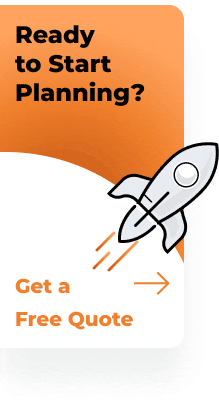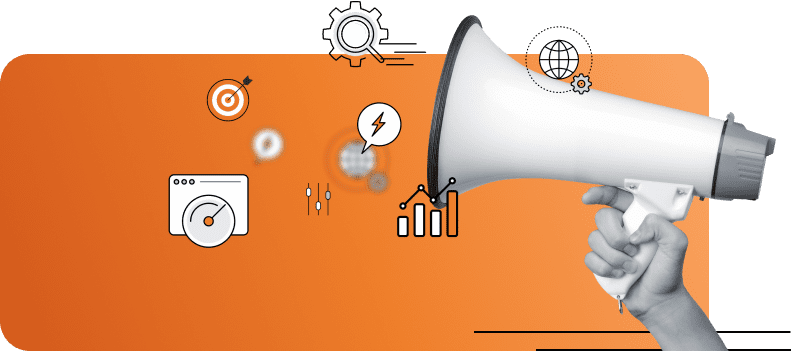Inbound marketing has transitioned from being a buzzword among the marketing elite to a critical strategic frontier for businesses around the globe.
This customer-centric approach to marketing turns the traditional outbound strategies on their heads, shifting the focus from cold calling and untargeted mass media to personalized, relationship-building methodologies.
Inbound marketing is not just about attracting consumers; it is a comprehensive approach to creating value, engaging, and, ultimately, enabling consumer action.
Here, we will define inbound marketing and explore some tailor-made inbound marketing business solutions that businesses can leverage to enhance customer conversions.
Understanding Inbound Marketing
In the fast-evolving landscape of digital commerce, a comprehensive grasp of inbound marketing is indispensable for businesses striving for ascendancy.
This customer-centric approach harnesses the power of content marketing, social media, SEO, and personalized branding to captivate and cultivate prospective clients. Central to inbound marketing is its strategic methodology, comprised of three crucial stages:
- Attracting the right demographic
- Engaging with potential customers
- Sustaining customers’ satisfaction
By integrating these targeted inbound marketing tactics, businesses craft a full-circle inbound marketing strategy that’s both effective and seamless.
Defining inbound marketing as a strategic, responsive approach to customer acquisition and retention underscores its importance.
An adept injection of inbound marketing tactics can transform your brand into a beacon of expertise and innovation, ultimately securing a competitive edge in the bustling world of inbound digital marketing.
Crafting Your Unique Inbound Pathway
Crafting your unique inbound pathway is a strategic imperative that necessitates a nuanced, tailor-made approach, befitting the distinct characteristics of your business.
Defining inbound marketing within the context of your company involves a meticulous analysis of consumer data, to garner a deep understanding of customer behaviors and predilections.
In pursuit of an effective inbound marketing strategy, it becomes essential to construct detailed buyer personas that embody the demographics, the challenges faced, and the objectives pursued by your ideal customers.
Such a delineated understanding enables you to meticulously align your content creation efforts with the various stages of the buyer’s journey. To streamline this process, consider the following steps:
- Analyze Your Data
- Develop Buyer Personas
- Align Content with Buyer Stages
Through the judicious implementation of such inbound digital marketing practices, your business can forge a pathway that not only defines but also exemplifies the pinnacle of bespoke, customer-centric marketing.
Leveraging Personalization for Enhanced Conversions
In the rapidly evolving landscape of inbound marketing, businesses must continually innovate to stay ahead of the curve. One of the most potent strategies at their disposal is leveraging personalization for enhanced conversions.
Personalization transcends the basic tactic of incorporating the prospect’s first name in email communications; it involves a deeper level of customization that resonates with each unique individual.
To define inbound marketing success in the context of personalization, there are three critical techniques:
- Segmentation
- Dynamic Content
- Behavioral Triggers
For businesses seeking to refine their inbound marketing business, personalization is not just an option but rather an imperative aspect of contemporary marketing that drives conversions and positions the brand as a thought leader at the forefront of innovation.
The Power of SEO-Driven Content Creation
In today’s digital landscape, the prowess of SEO-driven content creation cannot be understated. It forms the backbone of an adept inbound marketing business, which catalyzes the elevation of a business’s virtual presence and influences its ability to compete in saturated markets.
By integrating SEO meticulously into content creation, businesses optimize their online visibility, allowing them to ascend organically in search engine results pages (SERPs) and to be effortlessly discovered by prospective clientele.
When we define inbound marketing fundamentally, the following elements are imperative in a strategy that is engineered for success:
- Keyword Research
- Content Quality
- Technical SEO
Businesses committed to future-proofing their digital footprint recognize the indispensability of these elements in crafting an inbound marketing strategy that transcends mere visibility to engender authentic engagement and conversion.
With the use of specific inbound marketing tactics, such as the creation of highly targeted and specialized content, companies can assert their domain authority and chart a course for enduring digital market leadership.
Generating Leads with Compelling Content Offers
In the dynamic realm of inbound digital marketing, a strong content offer is paramount for translating website visitors into qualified leads.
By providing high-value offerings such as e-books, white papers, expert-led webinars, or free trials, businesses can incentivize visitors to exchange their contact information, taking the first crucial step in building a relationship. However, to craft an offer that truly captivates, firms must:
- Identify Pain Points
- Provide Solutions
- Continual Testing
By embedding these strategies into your inbound marketing tactics, you define inbound marketing not just as a concept but as a measurable asset in your marketing arsenal.
Effective execution of these principles will enhance your inbound marketing strategy, placing your business at the forefront of industry evolution and ensuring competitiveness.
Measuring Inbound Success and Ongoing Optimization
In the arena of inbound marketing business, the ability to quantify success and adapt continuously is paramount. One must first define inbound marketing objectives clearly to ensure alignment with overarching business goals.
Employing sophisticated analytics tools, such as Google Analytics, is essential for capturing and dissecting data that inform decision-making processes pivotal to inbound marketing strategy refinement.
To effectively gauge and enhance the efficacy of inbound digital marketing efforts, businesses should adhere to a three-pronged approach:
- Establish Quantifiable Goals
- In-depth Analytics Utilization
- Commitment to Evolutionary Improvement
This iterative cycle enables marketers to finetune their SEO strategies, ensuring that every tactic is optimized for peak performance within the dynamic marketplace.
Inbound marketing business solutions are a powerful resource for businesses looking to foster consumer conversions.
By understanding the nuances of this approach, tailoring inbound marketing tactics to meet the unique needs of your audience, and continuously adapting based on data-driven insights, businesses can not only drive sales but also build sustainable, long-term customer relationships.
Whether you’re a small business or a corporate giant, inbound digital marketing offers a growth path that is both effective and economically efficient.









